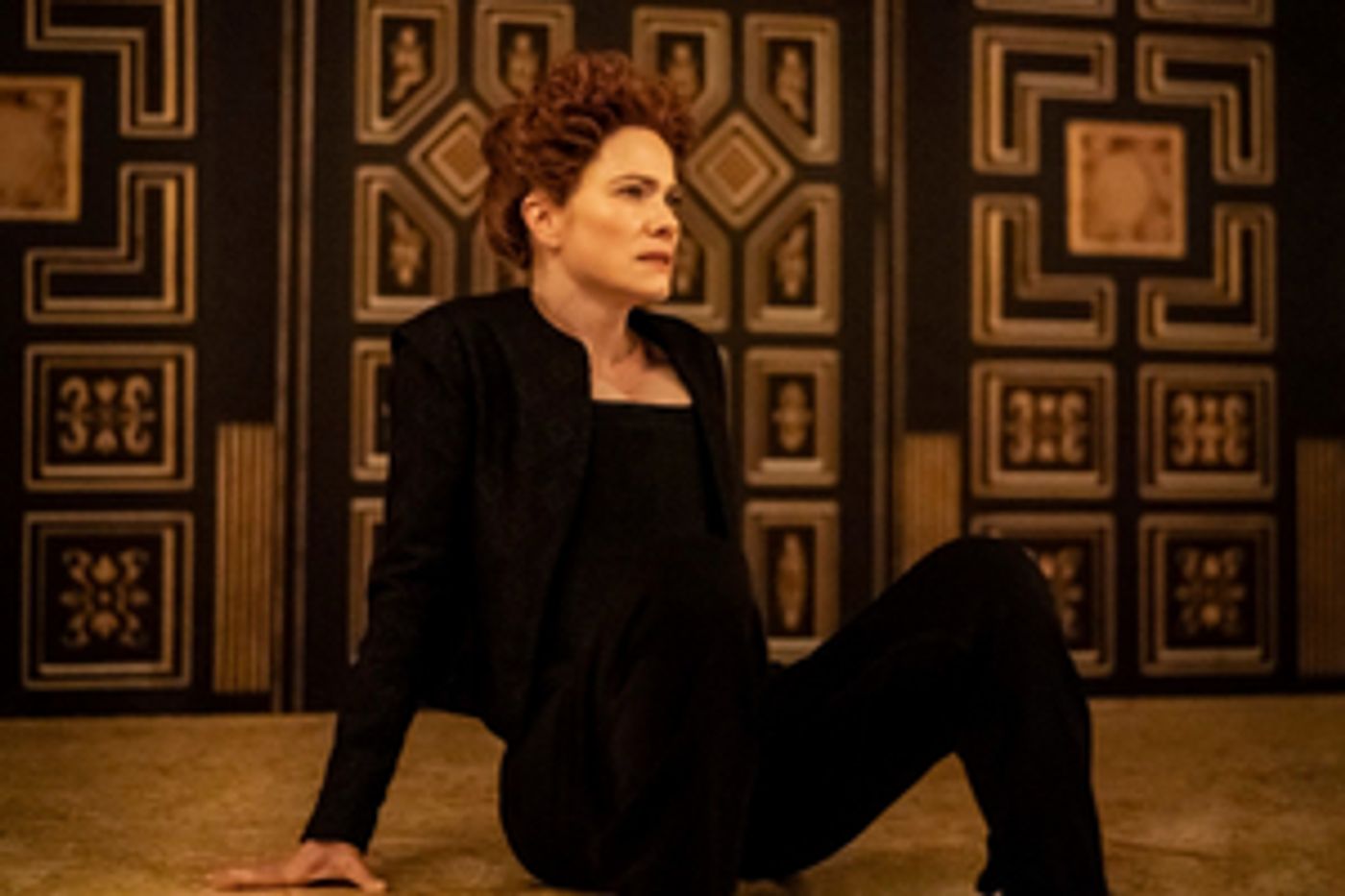Review: SWIVE, Sam Wanamaker Playhouse

![]() Few English reigns have been quite as theatrical as that of Elizabeth I; from her fine gowns and jewellery to the youthful (or so she thought) wigs and makeup, she preserved her position as monarch by creating the characters of Gloriana and the Virgin Queen. This theatricality feeds into Ella Hickson's new play Swive, as a less familiar version of Elizabeth addresses the audience, tweaks history, and even plays with our expectations of the auditorium's surroundings.
Few English reigns have been quite as theatrical as that of Elizabeth I; from her fine gowns and jewellery to the youthful (or so she thought) wigs and makeup, she preserved her position as monarch by creating the characters of Gloriana and the Virgin Queen. This theatricality feeds into Ella Hickson's new play Swive, as a less familiar version of Elizabeth addresses the audience, tweaks history, and even plays with our expectations of the auditorium's surroundings.
The play covers roughly 40 years of Elizabeth's life, beginning with the time she spent living with Catherine Parr and her new husband Thomas Seymour, continuing through her sister Mary's reign, and finally taking in her time on the throne up until the execution of Mary, Queen of Scots. During this time, the ambitious Seymour attempts to manipulate the teenage princess into romantic feelings for him, whilst the equally ambitious advisor William Cecil plays his own game and siphons off as much power as he can.
It's quite incredible to think that, over 400 years later, women in positions of power are still subjected to a higher level of scrutiny than men - and that double standards in their perception by the public persist, particularly when you consider parenthood. A clear example in the play of Elizabeth only being allowed the title of "Supreme Governor" of the Church of England - when her father had been the "Supreme Head" - because it sounds more "protective and nurturing", ties in well with then leadership hopeful Theresa May having to talk about her unsuccessful attempts to start a family simply to counter her childlessness.
The play draws you in with its irreverent tone and forays into anachronistic dialogue; this helps to draw the parallels between the 16th and 21st centuries to a point, although there are some occasions where it jars ever so slightly with the mood of the scene. On the whole, however, it works well and is a great source of humour - important when tackling a subject so serious and that remains a very real problem to half of the world's population.
Nina Cassells and Abigail Cruttenden take on the two ages of Elizabeth, as well as playing some of the other women in Elizabeth's life. In part it's clearly a practical thing, helping to show the progression of time within a 90-minute play, but it's also interesting to see the younger female in a position to try and usurp the older on different occasions, following attempts at manipulation from men. It's almost like watching an alternate reality, as you see Cecil (Michael Gould) give Princess Elizabeth some advice, which she ignores but Katherine Grey later decides to take on board - with very different consequences.
It's telling that Elizabeth absorbs Catherine Parr's words and adds them to her arsenal, trusting the main female role model in her life rather than a man. An unsurprising thing, when you consider that they all insist that marriage is the best option for her, despite her bluntly laying out how that has worked for Mary, Queen of Scots; Cruttenden's delivery of this speech drew a round of applause for its calm clarity in the face of bloody-mindedness.
At a time when women's equality seems almost as far off as it has ever been, it's gratifying to see something that so succinctly shows up male hypocrisy whilst promoting female capability. This sharp and witty new play is the boost women desperately need, and is guaranteed to stoke the fire that blazes within.
Swive is at the Sam Wanamaker Playhouse until 15 February 2020
Picture credit: Johan Persson
Reader Reviews
Videos

